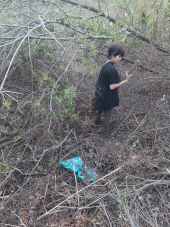posted 8 years ago
This is a great example of pseudo science being represented as a valid study to jerk people's consciousness into recognition of an issue.
In the article there is little mention of the fact that this was a marine science investigation, one part of one sentence I believe, mentions that it was a zooplankton study that was being done.
Soil is different that an ocean or a lake where the minerals needed are only available in solution, there is also a disconnect since zooplankton feed on more that just algae in the wild.
Over all the message of lack of nutrition in the grocery store is approached very back door giving the illusion that what they started talking about is directly related to this.
There are many inter related things happening that are causing the lack of nutritional value in our foods CO2 is not a big part of this, but it is easier to measure and it grabs people's attention, sadly it is only a part of the problem, not the major significant issue the article leans you towards.
People need to understand how soil works and how minerals, water, sunlight and heat all interact to bring about good microbiological life in the soil.
Once you grasp this, then you are in a place to extrapolate that knowledge to begin to understand the microbiological life and interrelations in the worlds oceans.
Redhawk





